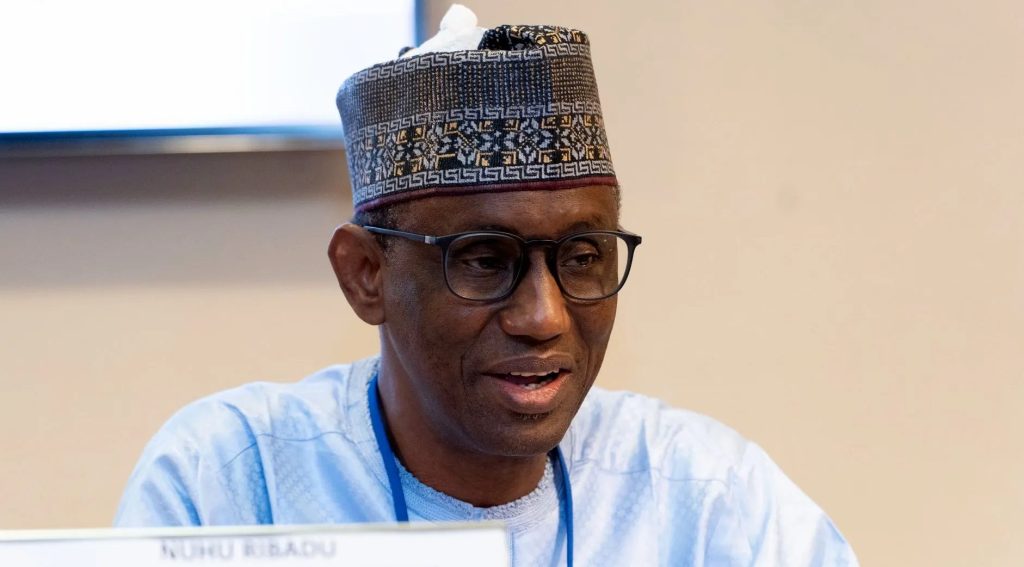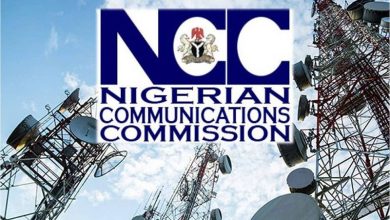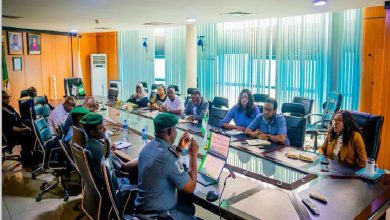Ribadu Cautions States Against Shutting Down Telecom Sites, Warns of Economic Risks
National Security Adviser Nuhu Ribadu has warned state governments against shutting telecom sites over revenue disputes.
He said such actions threaten broadband growth and Nigeria’s digital and economic progress.
National Security Adviser Nuhu Ribadu has cautioned state governments against closing telecommunications sites over revenue disputes or security concerns, warning that such actions threaten Nigeria’s digital growth and economic future.

Ribadu, represented by Enebong Effiom, Director of Critical National Assets and Infrastructure Protection at the Office of the National Security Adviser, gave the warning on Wednesday in Abuja during a Business Roundtable on Broadband Investment and Infrastructure Security.
He said the arbitrary closure of telecom facilities, multiple taxation, and inconsistent right-of-way charges were disrupting broadband expansion across the country.
“In some states, internal security structures are used to seal telecom sites over revenue issues. They think they are helping their superiors, but they are in fact hurting their own states and slowing national development,” Ribadu said.
He explained that broadband infrastructure should be treated as a critical national asset, not just a commercial project, noting that the digital economy would soon become the key driver of development.
“In the near future, digital access will define opportunities for education, jobs, and growth. States that invest in broadband will prosper, and those that do not will be left behind,” he stated.
Ribadu said Nigeria’s broadband penetration currently stands at about 40 per cent, far below the 70 per cent target of the National Broadband Plan (2020–2025). He cited research showing that a 10 per cent increase in broadband access could raise GDP by up to 3.8 per cent, adding that revenue-driven disruptions undermine this potential.
He urged state governments to adopt uniform and investor-friendly right-of-way (RoW) policies, protect fibre cables from vandalism, and work with communities to safeguard infrastructure.
Speaking on behalf of the Nigeria Governors’ Forum (NGF), its Chairman and Kwara State Governor AbdulRahman AbdulRazaq, reaffirmed states’ commitment to expanding broadband coverage. Represented by NGF Director-General Dr Abdulateef Shittu, the governor said broadband connectivity was central to Nigeria’s social and economic future.
“Broadband is the backbone of our digital economy. It supports industries, education, and financial inclusion, and contributes more than half of Nigeria’s GDP,” AbdulRazaq said.
He noted that several states had harmonized right-of-way processes and were improving local security to protect telecom assets through surveillance and community intelligence networks.
The Executive Vice Chairman of the Nigerian Communications Commission (NCC), Dr Aminu Maida, also called for the protection of telecommunications facilities and the harmonization of RoW charges across states.
“Connectivity today equals productivity and inclusion,” Maida said, adding that Nigeria’s broadband penetration reached 48.81 per cent in August 2025, with over 140 million users online.
He recalled that President Bola Tinubu had signed the Critical National Information Infrastructure (CNII) Presidential Order in June 2024 to safeguard telecom facilities.
Maida revealed that eleven states had fully waived RoW fees, while seventeen others had capped charges at ₦145 per metre, describing the move as a step toward lower costs and faster broadband rollout.
However, he expressed concern over rising cases of vandalism, noting that between January and August 2025, the country recorded over 19,000 fibre cuts, 3,200 equipment thefts, and thousands of access denials at telecom sites, leading to major service disruptions.
To address these challenges, the NCC will launch two key initiatives, the Ease of Doing Business Portal and the Nigeria Digital Connectivity Index, to assess and publish each state’s digital readiness and competitiveness.
Also speaking at the event, the Minister of Finance and Coordinating Minister of the Economy, Wale Edun, represented by Mohammed Ali, reiterated the Federal Government’s commitment to supporting broadband expansion through collaboration with states, investors, and development partners.
He said, “Nigeria’s growth now depends on embracing digital infrastructure. To achieve it, we need strong financial backing, technical capacity, and collective commitment from both the public and private sectors.”



